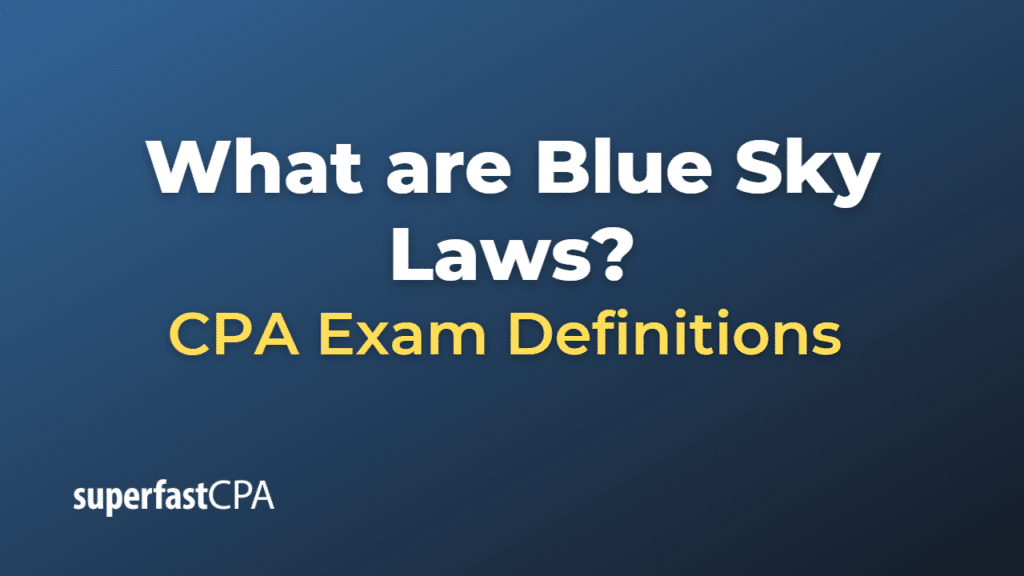Blue Sky Laws
Blue sky laws are state-level regulations in the United States that govern the offering and sale of securities, aiming to protect investors from fraudulent practices and ensure transparency in the securities market. The term “blue sky laws” originated in the early 20th century, alluding to speculative schemes that had as much value as a patch of blue sky.
Blue sky laws vary from state to state, but they generally require the registration of securities offered for sale and the licensing of broker-dealers and investment advisers involved in the securities industry. These laws also typically include provisions related to the disclosure of essential information about the securities being offered, as well as the financial condition of the issuer, to help investors make informed decisions.
The main objectives of blue sky laws are to:
- Protect investors: Blue sky laws aim to shield investors from fraudulent schemes and misrepresentations by ensuring that securities offerings comply with state regulations and provide adequate disclosure of relevant information.
- Promote transparency: By requiring the registration of securities and the licensing of industry professionals, blue sky laws help promote transparency and accountability in the securities market.
- Maintain market integrity: Blue sky laws contribute to maintaining the integrity of the securities market by deterring fraudulent practices and providing a legal framework for prosecuting those who violate the regulations.
While blue sky laws are primarily state-level regulations, they operate alongside federal securities laws administered by the Securities and Exchange Commission (SEC). The Securities Act of 1933 and the Securities Exchange Act of 1934 established a comprehensive regulatory framework for securities offerings at the federal level, but blue sky laws continue to play an essential role in protecting investors and ensuring compliance with state-specific requirements.
Example of Blue Sky Laws
Let’s consider a hypothetical example to illustrate how blue sky laws work to protect investors and maintain transparency in the securities market.
Suppose there’s a start-up technology company, TechVentures Inc., based in State X, that wants to raise capital through a private offering of its shares to investors residing in State X and State Y. Before TechVentures can legally offer and sell its securities to investors, it must comply with blue sky laws in both states.
To meet the requirements of State X’s blue sky laws, TechVentures needs to:
- Register the securities offering with the state’s securities regulator by submitting the necessary forms, fees, and disclosure documents, including information about the company’s financial condition, business plan, and management team.
- Ensure that the broker-dealers and investment advisers involved in the offering are licensed and in good standing with the state’s securities regulator.
- Provide prospective investors with a comprehensive offering document, including all material information about the company and the risks associated with investing in its securities.
Similarly, TechVentures must also comply with State Y’s blue sky laws, which may have slightly different requirements for registration, licensing, and disclosure.
By adhering to blue sky laws in both states, TechVentures can legally offer and sell its securities to investors while ensuring transparency and investor protection. Investors can make informed decisions based on the provided disclosures, and the states’ securities regulators can monitor and enforce compliance with the regulations.
If TechVentures were to violate the blue sky laws, such as by selling unregistered securities or engaging in fraudulent practices, it could face severe penalties, including fines, restrictions on future securities offerings, and legal actions by the states’ securities regulators.













